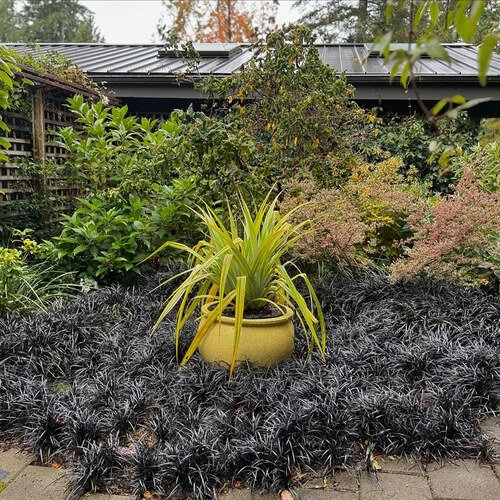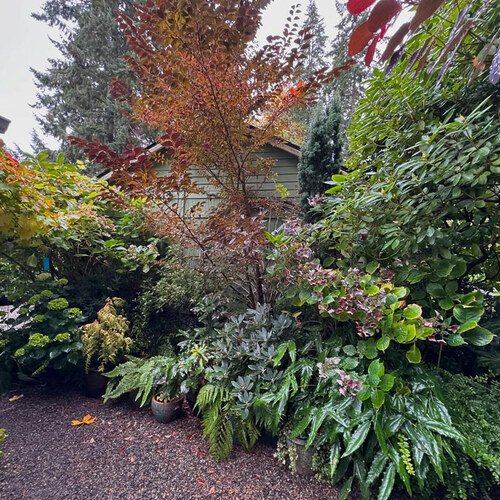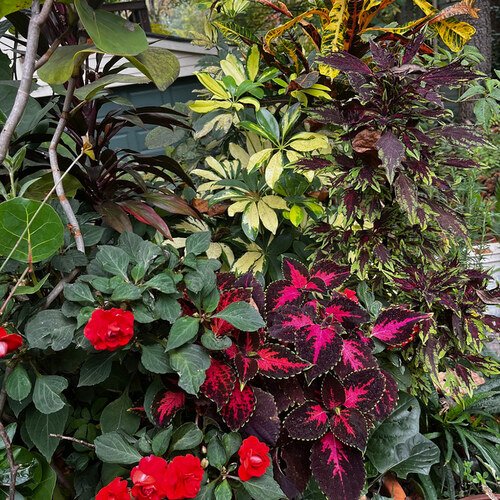
The snippet provided at the beginning of this article showcases a virtual tour of Heronswood Garden in Kingston, Washington. The author, Cherry Ong, shares her experience and photographs of the beautiful garden, highlighting the stunning fall foliage and plant varieties on display.
One of the key elements of the webpage layout is the use of
The
In the provided snippet, the
Furthermore, the
Overall, the
In conclusion, the
If you are a gardener, we’d love to hear from you! Share with us where you are located, how long you’ve been gardening, successes you are proud of, failures you learned from, hopes for the future, favorite plants, or funny stories from your garden. Your experiences can inspire and educate others who share your passion for gardening.
Location plays a significant role in gardening, as different climates and soil types can impact the success of your plants. Whether you live in a tropical paradise, a dry desert, or a chilly mountain region, there are unique challenges and opportunities for gardeners in every location. By sharing where you are located, you can connect with fellow gardeners who may be facing similar conditions and exchange valuable tips and advice.
The length of time you have been gardening also influences your knowledge and skills in the field. Some people have been gardening for decades, while others are just starting out on their green thumb journey. No matter where you fall on the spectrum, there is always something new to learn and discover in the world of gardening. By sharing your experience, you can inspire beginners and offer guidance to those who are looking to improve their gardening skills.
Successes in the garden are worth celebrating, whether it’s growing a bumper crop of tomatoes, cultivating a lush flower bed, or finally conquering that pesky weed problem. By sharing your gardening successes, you can inspire others to keep pushing forward and strive for their own achievements. Success in the garden is a testament to hard work, patience, and a deep love for plants and nature.
Failures are inevitable in gardening, but they also provide valuable lessons that can help you become a better gardener. Maybe you planted a tree in the wrong spot and it didn’t survive, or perhaps you forgot to water your plants during a heatwave. Whatever the case may be, failures teach us resilience, adaptability, and the importance of learning from our mistakes. By sharing your gardening failures, you can help others avoid similar pitfalls and grow from their own experiences.
Hopes for the future in your garden can range from expanding your plant collection to creating a more sustainable and eco-friendly outdoor space. Maybe you dream of starting a community garden in your neighborhood or attracting more pollinators to your yard. Whatever your aspirations may be, the future holds endless possibilities for growth and creativity in the garden. By sharing your hopes and dreams, you can inspire others to think big and aim high in their own gardening endeavors.
Favorite plants are like old friends in the garden – they bring you joy, comfort, and a sense of familiarity. Whether you have a soft spot for roses, a passion for succulents, or a love affair with tomatoes, your favorite plants reflect your unique personality and gardening style. By sharing your favorite plants, you can connect with fellow gardeners who share your enthusiasm and swap tips on how to care for these beloved botanical companions.
Funny stories from the garden are always a welcome addition to any gardener’s repertoire. From unexpected encounters with wildlife to comical mishaps with garden tools, there is no shortage of humorous moments in the world of gardening. Laughter is good for the soul, and sharing funny stories from your garden can bring a smile to the faces of your fellow gardeners. After all, gardening is meant to be enjoyed, so why not have a good chuckle along the way?
In conclusion, gardening is a rewarding and fulfilling hobby that brings people together and fosters a deep connection with the natural world. By sharing your gardening experiences – whether they be successes, failures, hopes, favorite plants, or funny stories – you can inspire, educate, and entertain your fellow gardeners. So, don’t be shy – share your gardening tales and let your green thumb shine! the benefits of practicing mindfulness in everyday life
Mindfulness has become a popular buzzword in recent years, with more and more people turning to this ancient practice to help them cope with the stresses and strains of modern life. But what exactly is mindfulness, and how can it benefit us in our everyday lives?
At its core, mindfulness is about being present in the moment, fully aware of our thoughts, feelings, and sensations without judgment. It involves paying attention to the present moment with openness and curiosity, rather than getting caught up in regrets about the past or worries about the future. By practicing mindfulness, we can learn to observe our thoughts and emotions without getting swept away by them, allowing us to respond to situations with greater clarity and compassion.
One of the key benefits of mindfulness is its ability to reduce stress and anxiety. In today’s fast-paced world, many of us are constantly juggling multiple responsibilities and commitments, leading to feelings of overwhelm and burnout. By practicing mindfulness, we can learn to slow down and focus on the present moment, allowing us to let go of worries and anxieties about the future. Research has shown that mindfulness can help to reduce levels of the stress hormone cortisol, leading to a greater sense of calm and relaxation.
In addition to reducing stress, mindfulness can also improve our overall mental health. By observing our thoughts and emotions without judgment, we can develop a greater sense of self-awareness and emotional regulation. This can help us to better understand our triggers and patterns of behavior, leading to healthier and more fulfilling relationships with ourselves and others. Studies have shown that mindfulness can be an effective treatment for depression and anxiety, helping individuals to break free from negative thought patterns and cultivate a more positive outlook on life.
Furthermore, mindfulness can improve our physical health as well. Research has shown that practicing mindfulness can lower blood pressure, strengthen the immune system, and reduce chronic pain. By learning to tune into our bodies and be present in the moment, we can develop a greater awareness of our physical sensations and needs, allowing us to take better care of ourselves. Mindfulness can also help us to break free from unhealthy habits such as overeating or smoking, leading to improved overall well-being.
Another benefit of mindfulness is its ability to enhance our focus and concentration. In today’s digital age, many of us are constantly bombarded with distractions from our phones, computers, and other devices. By practicing mindfulness, we can train our minds to stay focused on the task at hand, leading to greater productivity and efficiency. Studies have shown that mindfulness can improve cognitive function and working memory, making it easier for us to retain information and make better decisions.
Furthermore, mindfulness can enhance our creativity and problem-solving skills. By tapping into our inner resources and cultivating a beginner’s mind, we can approach challenges with a fresh perspective and explore new possibilities. Mindfulness can help us to break free from rigid thinking patterns and open ourselves up to innovative solutions. By learning to embrace uncertainty and ambiguity, we can develop greater resilience and adaptability in the face of change.
In conclusion, mindfulness is a powerful tool that can benefit us in all areas of our lives. By learning to be present in the moment and cultivate a greater sense of self-awareness, we can reduce stress and anxiety, improve our mental and physical health, enhance our focus and concentration, and boost our creativity and problem-solving skills. Whether through formal meditation practices or simple everyday mindfulness exercises, we can all benefit from incorporating mindfulness into our daily routines. So why not give it a try and see the positive impact it can have on your life?






